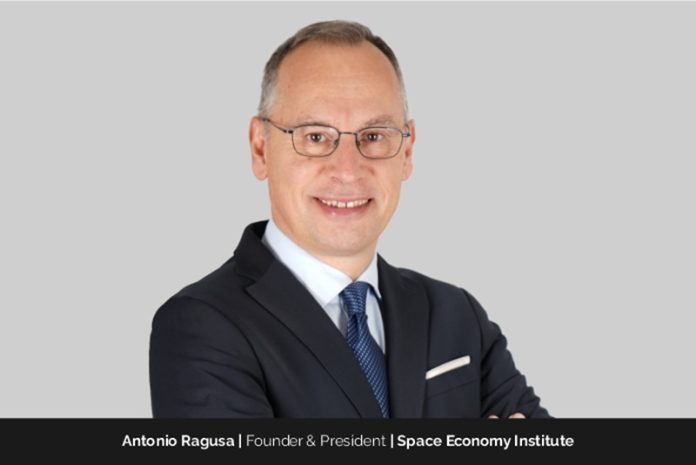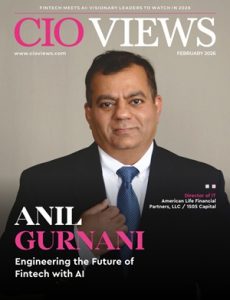“Education is more than information. It’s a blend of foresight, integrity, and the boldness to influence what comes next.” That belief defines the approach of Antonio Ragusa, founder and dean of several academic institutions, including the Rome Business School (RBS), Rome Business School Nigeria (RBSN), and the Space Economy Institute (SEI). It was his profound conviction in the transformative power of education to shape individuals, communities, and the future of our planet that inspired him to build these institutions. Each endeavor was meticulously designed to awaken purpose and possibility.
Antonio didn’t aim to replicate another academic model. His goal was to redesign how knowledge ignites purpose, awakens potential, and empowers people in a world that’s becoming more complex by the day. To him, meaningful progress isn’t measured by degrees or credentials, but by the kind of leaders we nurture. Individuals who are equipped not just to succeed, but to shape better outcomes for their communities and industries.
Rome Business School was founded to deliver top-tier, internationally focused business education anchored in strong values. It emerged in response to the rising demand for ethical, globally conscious leadership. Its extension into Nigeria carried that intent into new regions and realities. But Antonio was already looking ahead. The Space Economy Institute followed, designed not as a continuation of old models but as a hub for cross-sector imagination. He sees space not in terms of rockets but as a meeting point for sustainability, technology, governance, economics, human ingenuity, and a new dimension of global cooperation.
Together, these initiatives reflect Antonio’s commitment to creating education that is innovative, inclusive, and profoundly impactful.
Where World-Class Experience Meets Educational Reform
Education shapes more than intellect. It awakens conscience, builds discernment, instills grit, and forges the will to serve. That sentiment runs through every chapter of Antonio’s journey. He credits his global academic and corporate path with shaping how he leads and reimagines education. He studied law in Italy, earned an MBA in London, and specialized in marketing and communications at the London School of Economics. A PhD in Education from the University of Almeria followed. Before launching his own ventures, he cut his teeth in powerhouses like Enel and Trenitalia. These high-stakes environments taught him to value clarity, active listening, and diverse viewpoints.
Along the way, he noticed what traditional education often misses: relevance, energy, and real-world connection. For Antonio, innovation lives in how we question the default, refine systems, and create learning experiences that prime people to contribute with confidence and purpose.
Reimagining Tomorrow, From Orbit Inward
This pioneering trailblazer sees the space economy as one of the most thrilling and consequential frontiers of the 21st century. “Space is not only a destination,” Antonio asserts, “It is a new lens through which we must reimagine life, leadership, and learning on Earth.” Beyond exploration, it encompasses satellite services, space-based research, planetary resource governance, and future interplanetary trade. To him, it urges humanity to think expansively, ethically, and with a long-term view.
Education, he believes, must keep pace with the times. Training the next generation to tackle complex, cross-sectoral challenges, such as orbital debris policy and space tourism strategy, is a pressing need. At the Space Economy Institute, Antonio affirms that they are already designing these learning tracks to ensure students step into the future not as bystanders, but as contributors shaping the new space economy.
Ethics as Infrastructure, Not Ornament
To Antonio, ethical leadership isn’t a side topic. It’s the primary syllabus. At both institutions, social impact is embedded in everything they do—from simulations and casework to service learning and guest engagement. He emphasizes their focus on impact, purpose, and a mindset of giving back at every level.
Students are taught to ask better questions, not just find faster answers: Who benefits from this innovation? What are the unintended consequences? How do we ensure inclusivity, fairness, and sustainability? Antonio considers that leading with integrity holds equal weight to mastering strategy or data.
Turning Barriers into Building Blocks
Success didn’t show up gift-wrapped for Antonio. He earned it the hard way. Launching a global education brand without deep pockets meant confronting fierce competition, balancing affordability with quality, and scaling fast while building something that could last. The real test came with the Rome Business School Nigeria. Expanding into an emerging market called for boldness, patience, and a deep belief in local potential. That bet paid off. Today, the campus thrives with over 3,000 students from across Africa.
Antonio met each challenge by relying on a capable team, keeping his eyes on long-term impact, and refusing to waver in his mission, even when progress felt uphill.
The Stillness Behind the Drive
Even in high gear, Antonio keeps balance through presence. For him, it’s not about dividing time equally but about choosing where to be fully present. He focuses on what needs his touch, trusts his team with the rest, and protects time for nature, reflection, and family. Leadership, he believes, is a marathon, not a sprint. It calls for grounded clarity, emotional renewal, and moments that restore what ambition alone cannot. Antonio understands that vision and energy can only be sustained when both the mind and soul are replenished.
Tech With a Soul: Reimagining Education in the Age of AI
Technology alone doesn’t transform learning; purpose does. At the Rome Business School and the Space Economy Institute, digital tools and AI are used to enrich rather than replace human educators. Antonio explains that these innovations personalize content, reduce administrative drag, and provide real-time insights that sharpen outcomes. Still, what makes education truly transformative are empathy, ethics, and critical thinking. Looking at the current trends, he anticipates, “The future of education will be hybrid, immersive, and intelligent—but always profoundly human.” All anchored in the connections, values, and curiosity that make learning truly matter.
The Moments That Moved Him Most
Being named one of ‘The 10 Most Influential People Revolutionizing Education in 2025’ is no small honor. Yet when asked what truly stirred him, Antonio points to something more personal. One defining moment occurred at the inaugural graduation ceremony of the Rome Business School Nigeria. Watching hundreds of students, many of whom were the first in their families to access global education, deeply moved him. It was not only about degrees but also about generational change.
Another milestone came with the rapid traction of their Space Economy Master’s program. Within months, it had drawn global attention. For Antonio, it was powerful validation that they were tapping into a real need and leading the way in shaping it.
Staying Ahead Without Losing Ground
In a rapidly evolving education sector, the Rome Business School and the Space Economy Institute stand out by listening and responding. Antonio and his team stay attuned to students, companies, and policymakers, adapting quickly without losing sight of their core values. They recruit faculty who are not just academics, but also practitioners at the forefront of innovation.
With partnerships spanning from European universities to African tech hubs, they’ve invested in hybrid learning, intensive boot camps, and projects that reflect real-world challenges. For instance, a recent collaboration with a sustainability startup had students designing viable climate-tech solutions. The objective is to prepare learners not for today, but for what’s next.
Guidance for the Next Generation of Leaders
“Start with a purpose greater than yourself. Don’t just build an institution—build a legacy.” That’s Antonio’s quiet advice to aspiring leaders hoping to make a lasting difference in education. The veteran urges them to cultivate the courage to dismantle outdated systems while walking compassionately with their students through every step of their journey.
He advises aspirants that their focus should be on making an impact, not seeking applause. For Antonio, education isn’t a race for quick wins; it’s a profound craft, a dedicated service, and a relentless moral commitment. He firmly believes that if they lead with integrity and serve with heart, success will naturally ensue.
Where Ideas Are Meant to Move
Innovation doesn’t happen in rigid systems. That’s why Antonio and his team foster a culture that values experimentation, rewards initiative, and allows room to fail forward. Real-world projects, startup incubators, and innovation labs are embedded into the learning experience. Faculty are trained as mentors, not just lecturers. Students are empowered to become co-creators of their learning journeys, not passive recipients.
The goal is simple yet powerful: to create an environment where ideas can take shape and where bold thinking is not only welcomed but also expected.
A Legacy of Possibility
Antonio doesn’t speak of legacy in terms of titles or prizes. What matters to him is the continuity of institutions that continue to grow with purpose long after he’s gone, and people who carry the work forward. He hopes to leave behind more than schools. He wants to leave behind students, teachers, and colleagues who believe in an education rooted in values, driven by purpose, and open to the infinite possibilities of the future.
In the growing space economy, that vision stretches even further. Antonio hopes to inspire future leaders who see Earth from above, not divided by borders but united by destiny, connected by commitment, creativity, and a shared future worth shaping.
Orbiting the Future, Rooted in Humanity
When asked his boldest prediction for the future of education and the role he hopes to play, Antonio responds with firm optimism. He anticipates an education domain that is global, adaptive, and deeply purpose-led. Degrees will become modular, lifelong learning the default, and institutions will be measured not by prestige but by their tangible impact on society.
He reflects with a sense of wonder, “The classroom of the future may orbit the Earth, but its heartbeat will still be profoundly human.”
As for his role? It’s to help shape that future, to design new models, lead the dialogue, and inspire others to follow. It will spark a movement of educators who teach not just for today, but for what’s coming.





